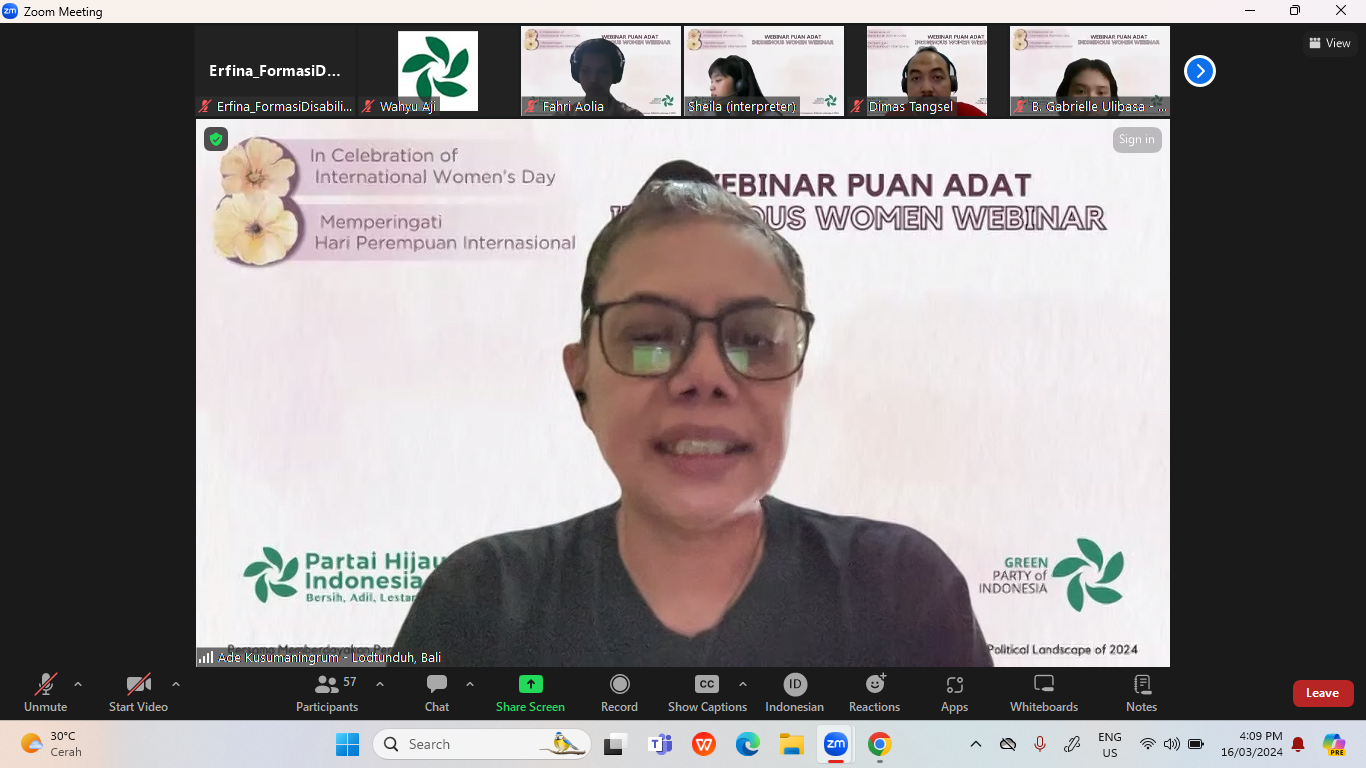Women and culture are two inseparable words. Women play roles in culture as preserver and guardian of tradition and norms in communities. It is impossible to ignore indigenous women, as they play critical roles as change agents and in natural conservation which are essential for the survival of traditional communities.
A zoom meeting discussion proceeds on Saturday 16 March 2024, exploring the Empowerment of Indigenous Women in Contemporary Political Landscape. The meeting involves 80 participants from a variety of regions in Indonesia and from overseas, and features speakers such as Jacinta O’Reilly (New Zealand Green Party), Bernadetta Deram (PEKKA), Maria Redemta, Michelin Sallata, and Ade Kusumaningrum as moderator.
Jacinta starts with a story about the Maori people, the indigenous people of New Zealand who face discrimination. Indigenous women are often victims of violence and their voice is ignored in decision making. The Green Party is now pushing for indigenous women to highlight Maori dignity and rights by electing Maori leaders.
“We are experiencing pressures from the government, and we ask for help and we collaborate through our green warriors. Maori women leadership has critical roles,” says Jacinta.
Jacinta elaborates that the green party supports indigenous communities to make decisions and let communities choose their strategy. For her, Maori women are strong and powerful in protecting and transfer their wisdom to the new generation. Jacinta cites an example whereby a senior high school student teaches Maori language and helps spread indigenous Maori culture.
Melty, from Lembata Island, adds that the strength and power of indigenous women is evident in day-to-day economy. Women can use and protect natural resources without reliance on outside sources – i.e. plant culture in their own hoes to support daily life.
Michelin Sallata from Toraja says that patriarchy culture is unavoidable for women. Indigenous women experience discrimination and violence and protection for indigenous communities is essential. Michelin explains that use of natural resources is allowed as long as it does not lead to negative outcomes for the community and the environment. There is a need to support indigenous communities so that they can speak up and be empowered to manage their own natural resources using local knowledge. Indigenous communities belong to vulnerable groups with their own unique sets of challenges and problems.
“Indigenous women must occupy strategic positions at village level, i.e. as village secretary, so that they can present their voices as formal village officials.” Says Michelin.
Dette from Akademi Paradigta highlights the importance of re-generation within indigenous women so that they are open to the current situation they are facing. Indigenous women must be able to change their ideas so as to eliminate challenges and issues and start thinking critically about their important roles at the smallest level.
There are many (thousands of) indigenous communities in Indonesia who are fighting for equality. The fight needs to be collective and massive. A strong foundation in indigenous communities llies in their women as source of and preserver of their existence.












